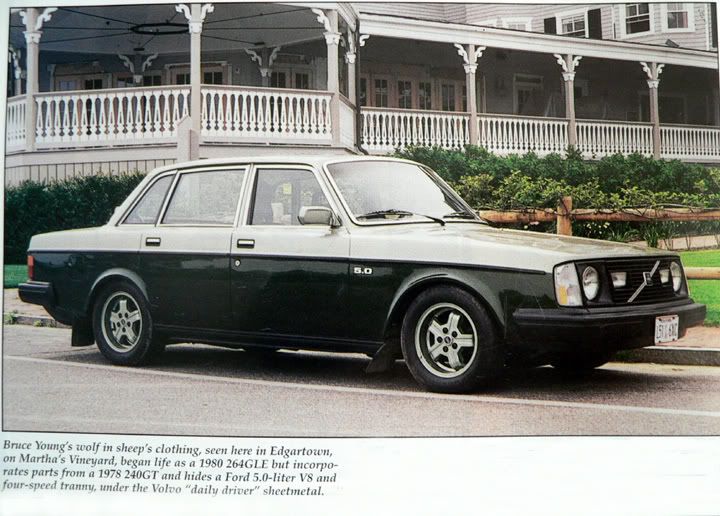posted by
someone claiming to be Bob
on
Fri Apr 23 02:23 CST 2004 [ RELATED]
|
|
'93 940 NA with Regina flunked emissions for the third time in NJ. I recently replaced the cat and thought that would do the trick. There was nothing left in the old one. Readings on the dyno were: NOX-1368, HC-17, CO-0.68, CO2-14.6, O2-0.0.
Any ideas? I replaced the O2 sensor with Bosch generic and the voltage swing appears to be good. I can't detect any leaks in the intake. Fuel injector prob?? There doesn't appear to be any gas in the oil.
Thanks, Bob
|
|
posted by
someone claiming to be Bob
on
Fri Apr 23 11:52 CST 2004 [ RELATED]
|
|
Limits:
NOX 937, Mine 1368
HC 124, Mine 17
CO% 0.69, Mine 0.68
CO2% Mine 14.6 (No pass/fail)
O2% Mine 0.0% (No pass/fail)
Read that lower octane gas (87) explodes, higher octane gas (93) burns more evenly, and this would contribute to high NOX in high compression engines. I've always used 87 and will switch to 93. Book says to use at least 91. I don't have EGR. Double-checked O2 sensor with digital mm and it's swinging. Seeing lots of .4's and .5's at idle. Guess this is good. Felt top hose and it's hot, thermostat OK?? Will replace anyway and do a flush. Will run some fuel cleaner through.
Coolant temp. sensor (?), will replace. Airbox door (?).
|
|
posted by
someone claiming to be Bob
on
Fri Apr 23 11:38 CST 2004 [ RELATED]
|
|
|
|
|
|
|
CO & HC look good - don't waste your time playing with the O2 sensor, it's working properly.
NOx is way high, that's related to burn temperature. Low coolact level, failing thermostat, mixture dilution (intake leak). Most 49 state B230 cars are not equipped with EGR but your Regina car may be. The sole purpose of the system is to lower burn temperature to control just the compounds your car is failing for. If it has EGR, that's the very first system to be checking.
You stated the test results for your car, but what are the limits?
|
|
|
|
|
If your 940 has the Regina system , you probably have the wrong O2 sensor installed. That would do it. The Regina's use a Titania type sensor, not a standard Zirconia , and to my knowledge Bosch does not make a universal replacement for a Titania. Do a search here or on Google on Titania O2 sensor and see what comes up.
|
|
posted by
someone claiming to be Bob
on
Fri Apr 23 14:46 CST 2004 [ RELATED]
|
|
Thanks for the tip! I searched the board and found some great information. Thanks lucid, art, artemus, interstition, dan, and all that posted in those threads. Did anyone find a generic titania that can be spliced in?
|
|
|
|
|
Yep, Walker# 250-23881 universal, Walker direct fit 250-23811. They got 'em at www.oxygensensors.com for $95 and $125. Also NTK # 25002, do not have a price.
All of the Regina systems require the correct Titania sensor( they use resistance changes to a feed signal from the ECM, not voltage generation) to function correctly.
|
|

|
|
The 250-23881 Universal has 8.25" leads and comes with 3 crimp terminals and 3 insulating sleeves. The direct fit leads are about 65" long. For $30 less, I'd splice.
Recommended replacement interval is 30K.
Should we now question Walker Product's quality and longevity?
--
Bruce Young
'93 940-NA (current) — 240s (one V8) — 140s — 122s — since '63.
|
|
|
|
|
I don't know if it is a function of their reliability, or just wanting to sell more product. Or both. All the Regina owners out there ( myself included), and some DC and Nissan owners that also use the Titania type, may not have any choice soon. According to a friend that is a manager in a major aftermarket parts chain, Standard is the only one on the planet that currently manufactures Titania sensors. That includes new OEM ( not NOS) stuff. Everyone else buys from them, and markets/sells in a different box.
|
|
|
|
|
It's possible, with rather simple electronics (an op-amp and some passives), to interface a zirconia sensor to titania input.
As soon as I permanently install my hack and it will survive a week or two on the car I'll publish the schematics.
Also note that it's a very bad idea to connect a zirconia sensor to titania input. That's not because it won't work, it's because it may work as the crossover voltages might be similar *but* the bias current for a titania sensor will kill a zirconia sensor in a year or so I guess.
You need some active device to isolate the titania input's bias current from the zirconia sensor's output. I presume some trivial FET-based circuit would work, but I believe in an op-amp here as they are easier to use for an initial prototype.
The inner workings of titania and zirconia sensors are well explained on many webpages and there's nothing "trade secret" about it. For net searching hints, try visit http://www.searchlores.org or if it's down try the mirror http://fravia.2113.ch/ or the wayback machine http://web.archive.org/web/20030621194613/http://www.searchlores.org/
Cheers, Kuba
|
|
|
|
|

